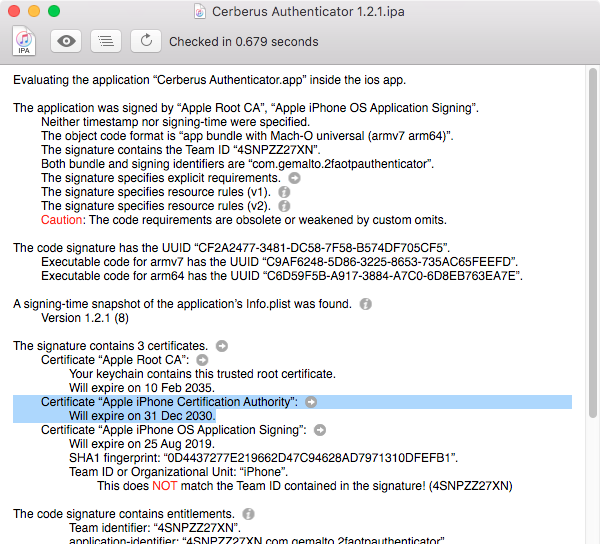Frida cheat sheet
Frida is particularly useful for dynamic analysis on Android/iOS/Windows applications. It allows us to set up hooks on the target functions so that we can inspect/modify the parameters and return value. We can also alter the entire logic of the hooked function. This article shows the most useful code snippets for copy&paste to save time reading the lengthy documentation page.
Frida python binding
Python binding to attach to an app:
import frida, sys
ss = """
Java.perform(function () {
// declare classes that are going to be used
const System = Java.use('java.lang.System');
const Log = Java.use("android.util.Log");
const Exception = Java.use("java.lang.Exception");
System.exit.implementation = function() {
// console.log(Log.getStackTraceString(Exception.$new()));
};
});
"""
device = frida.get_device_manager().enumerate_devices()[-1]
session = device.attach("com.example.test")
script = session.create_script(ss)
script.load()
sys.stdin.read()
Python binding to spawn an app:
import frida, sys
ss = """
Java.perform(function () {
// declare classes that are going to be used
const System = Java.use('java.lang.System');
const Log = Java.use("android.util.Log");
const Exception = Java.use("java.lang.Exception");
System.exit.implementation = function() {
// console.log(Log.getStackTraceString(Exception.$new()));
};
});
"""
device = frida.get_usb_device()
pid = device.spawn(["com.example.test"])
session = device.attach(pid)
script = session.create_script(ss)
script.load()
device.resume(pid)
sys.stdin.read()
Note that we need to load the script first before resuming if we need to perform early interception.
frida-trace
Attach to Chrome app on an Android phone and trace two native functions open and strcmp
$ frida-trace -U -i open -i strcmp -f com.android.chrome
Launch SnapChat app on an iPhone and trace CommonCrypto API calls
$ frida-trace -U -I "libcommonCrypto*" -f com.toyopagroup.picaboo
Trace an Obj-C method of Safari app
$ frida-trace -U -m "-[NSView drawRect:]" Safari
Frida over network
On the target device (192.168.1.3)
$ frida-server -l 0.0.0.0
On the attacking machine
frida-trace -H 192.168.1.3 -i "open*"
Common scripts
Convert IDA address to memory address and vice versa
function memAddress(memBase, idaBase, idaAddr) {
var offset = ptr(idaAddr).sub(idaBase);
var result = ptr(memBase).add(offset);
return result;
}
function idaAddress(memBase, idaBase, memAddr) {
var offset = ptr(memAddr).sub(memBase);
var result = ptr(idaBase).add(offset);
return result;
}
C: Hook HMAC function and print out the params
Interceptor.attach(Module.findExportByName("liba.so", "HMAC"), {
onEnter: function (args) {
var keySize = args[2].toInt32();
var keyDump = Memory.readByteArray(args[1], keySize);
console.log('HMAC Key found at ' + args[1]);
console.log('HMAC Key size = ' + keySize);
console.log(hexdump(keyDump, { offset: 0, length: keySize, header: false, ansi: false }));
}
});
C: Hook a static function by resolving its address
const membase = Module.findBaseAddress('libtest.so');
const fstatat = memAddress(membase, '0x0', '0x69E238');
Interceptor.attach(fstatat, {
onEnter: function (args) {
console.log('[+] fstatat: ' + Memory.readUtf8String(args[1]));
Memory.writeUtf8String(args[1], "/empty");
}
});
C: Print the backtraces of a list of functions
const membase = Module.findBaseAddress('libtest.so');
const funcs = [ '0x21B248', '0x21D0C8', '0x234730', '0x23F718', '0x259E68' ];
for (var i in funcs) {
var funcPtr = memAddress(membase, '0x0', funcs[i]);
var handler = (function() {
var name = funcs[i];
return function(args) {
var trace = Thread.backtrace(this.context, Backtracer.ACCURATE).map(DebugSymbol.fromAddress);
console.log(name + ': ');
for (var j in trace)
console.log(trace[j]);
};
})();
Interceptor.attach(funcPtr, {onEnter: handler});
}
C: Print the execution traces of a list of functions with Stalker
const funcs = [ '0x870FF0', '0x871BA0' ];
const STALKED = 12345;
const STARTING_ADDRESS = "0x102FE0";
const ENDING_ADDRESS = "0x89BE04";
const base = Module.findBaseAddress('libtest.so');
var threads = [];
for (var i in funcs) {
console.log('Hooking funcs[' + i + '] ' + funcs[i]);
Interceptor.attach(memAddress(base, '0x0', funcs[i]), {
onEnter: function (args) {
var tid = Process.getCurrentThreadId();
if (threads[tid] == STALKED)
return;
Stalker.follow(tid, {
events: {
call: true, // CALL instructions: yes please
ret: false, // RET instructions: no thanks
exec: false // all instructions: no thanks
},
onCallSummary: function (summary) {
var log = []
for (i in summary) {
var addr = idaAddress(base, '0x0', i);
if (addr.compare(ptr(STARTING_ADDRESS)) >= 0 && addr.compare(ptr(ENDING_ADDRESS)) <= 0)
log.push(addr);
}
console.log(JSON.stringify(log));
}
});
threads[tid] = STALKED;
},
onLeave: function (retval) {
var tid = Process.getCurrentThreadId();
if (threads[tid] == STALKED)
return;
Stalker.unfollow(tid);
Stalker.garbageCollect();
}
});
}
C: Invoke a libc function
var openPtr = Module.findExportByName("libc.so", "open");
var open = new NativeFunction(openPtr, 'int', ['pointer', 'int']);
var fd = open('/tmp/test.txt', 0);
Android: Hook C remove() function to save a files that is going to be deleted
const File = Java.use("java.io.File");
const FileInputStream = Java.use("java.io.FileInputStream");
const FileOutputStream = Java.use("java.io.FileOutputStream");
const ActivityThread = Java.use("android.app.ActivityThread");
var name = 0;
Interceptor.attach(Module.findExportByName(null, "remove"), {
onEnter: function (args) {
path = Memory.readUtf8String(args[0]);
Java.perform(function () {
// create the input channel
var f = File.$new(path);
var fis = FileInputStream.$new(f);
var inChannel = fis.getChannel();
// create the output channet
var application = ActivityThread.currentApplication();
if (application == null)
return;
var context = application.getApplicationContext();
var fos = context.openFileOutput('deleted_' + name, 0);
name = name + 1;
var outChannel = fos.getChannel();
// transfer the file from the input channel to the output channel
inChannel.transferTo(0, inChannel.size(), outChannel);
fis.close();
fos.close();
});
}
});
iOS: Hook an Obj-C method
const sendMessage = ObjC.classes.SecureStorage["- readFile:"];
Interceptor.attach(sendMessage.implementation, {
onLeave: function (retval) {
var message = ObjC.Object(retval);
console.log("- [SecureStorage readFile:] -->\n\"" + message.toString() + "\"");
}
});
Android: Hook constructor method of SecretKeySpec to print out the key byte array
Java.perform(function () {
var SecretKeySpec = Java.use('javax.crypto.spec.SecretKeySpec');
SecretKeySpec.$init.overload('[B', 'java.lang.String').implementation = function(p0, p1) {
console.log('SecretKeySpec.$init("' + bytes2hex(p0) + '", "' + p1 + '")');
return this.$init(p0, p1);
};
});
function bytes2hex(array) {
var result = '';
console.log('len = ' + array.length);
for(var i = 0; i < array.length; ++i)
result += ('0' + (array[i] & 0xFF).toString(16)).slice(-2);
return result;
}
Android: Hook the library loading
Java.perform(function() {
const System = Java.use('java.lang.System');
const Runtime = Java.use('java.lang.Runtime');
const VMStack = Java.use('dalvik.system.VMStack');
System.loadLibrary.implementation = function(library) {
try {
console.log('System.loadLibrary("' + library + '")');
const loaded = Runtime.getRuntime().loadLibrary0(VMStack.getCallingClassLoader(), library);
return loaded;
} catch(ex) {
console.log(ex);
}
};
System.load.implementation = function(library) {
try {
console.log('System.load("' + library + '")');
const loaded = Runtime.getRuntime().load0(VMStack.getCallingClassLoader(), library);
return loaded;
} catch(ex) {
console.log(ex);
}
};
});
Android: Java bytearray dumping
function bytes2hex(array) {
var result = '';
for(var i = 0; i < array.length; ++i)
result += ('0' + (array[i] & 0xFF).toString(16)).slice(-2);
result += ' (' + array.length + ' bytes)'
return result;
}
function jhexdump(array) {
var ptr = Memory.alloc(array.length);
for(var i = 0; i < array.length; ++i)
Memory.writeS8(ptr.add(i), array[i]);
console.log(hexdump(ptr, { offset: 0, length: array.length, header: false, ansi: false }));
}



Leave a Comment
Your email address will not be published. Required fields are marked *